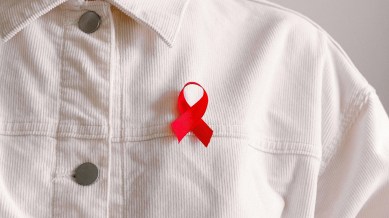Click here to join Express Pune WhatsApp channel and get a curated list of our stories
Why surveillance of HIV drug resistance is essential
Dr Gilada added that if a particular patient is already resistant to dolutegravir, which has a high genetic barrier to developing drug resistance, he/she will be given the same failing regimen for a year, thus exposing his/her sexual contacts to HIV infection and that too with a Dolutegravir resistance strain.

The World Health Organisation’s (WHO) new report on increase in HIV drug resistance to dolutegravir—a robust anti-retroviral medication is of great concern in India, says Dr Ishwar Gilada, president Emeritus of AIDS Society of India. He also underlined the need for surveillance of HIV drug resistance to monitor and prevent these challenges.
The report
Since 2018, WHO has recommended the use of dolutegravir as the preferred first and second-line of HIV treatment for all population groups. It is more effective, easier to take, and has fewer side effects than other drugs currently in use. It also has a high genetic barrier to developing drug resistance.
monthly limit of free stories.
with an Express account.
However, among the four surveys reported, levels of resistance to dolutegravir ranged from 3.9% to 8.6%. They reached 19.6% among people who underwent treatment and transitioned to a DTG-containing ART while having high HIV viral loads, according to WHO.
“The worrying evidence of resistance in individuals with unsuppressed viral load despite dolutegravir treatment underscores the need for increased vigilance and intensified efforts to optimize the quality of HIV care delivery,” said Dr Meg Doherty, director, WHO Department of the Global HIV, Hepatitis and STI programmes.
What is dolutegravir?
Dolutegravir helps decrease the amount of HIV in one’s body so that the immune system can work better and is used with other drugs—Tenofovir and Lamivudine—globally. Termed TLD – Tenofovir, Lamivudine and Dolutegravir, the National AIDS Control Organisation (NACO) has implemented TLD regimen in place of TLE as first line of antiretroviral treatment (ART) for people living with HIV (PLHIV) in India since 2020. Here, the dolutegravir molecule from TLD has replaced Efavirenz of TLE regimen.
Targets off track
In 2022, more than 75% of the 39 million people living with HIV globally were receiving HIV treatment. Countries have implemented the WHO recommendations with 116 of 127 adopting WHO-preferred first-line DTG-based treatment for adults and adolescents, and 74% of low and middle-income countries adopted viral load monitoring for adults and adolescents. But progress towards the Sustainable Development Goals (SDG) has stalled as there were still an estimated 1.3 million new HIV infections and 630,000 deaths from HIV-related causes, according to the WHO report.
“India has been providing free ART to 16 lakh PLHIVs and also introduced viral load monitoring of PLHIVs. However, rather than doing viral load at the initiation of ART as well as for monitoring the effects of ART, NACO has been providing free viral load tests annually only for monitoring. This has a risk of putting even those who have suppressed viral load on their own without ART –termed as Elite Controllers – on ART. Similarly, those with unsuppressed viral load are continued on the same ART regimen with just adherence counseling and called for repeat viral load test after a year,” says Dr Gilada.
Dr Gilada added that if a particular patient is already resistant to dolutegravir, which has a high genetic barrier to developing drug resistance, he/she will be given the same failing regimen for a year, thus exposing his/her sexual contacts to HIV infection and that too with a Dolutegravir resistance strain.
Drug stock outs need to be avoided
Drug stock outs is also a reason that can lead to irregularity in medications and needs to be avoided.”If we do not strictly follow the requirements to maintain excellent quality, robust supply chain management and proper viral load monitoring, we are inviting trouble of Dolutegravir resistance which will be part of Antimicrobial Resistance (AMR),” he said.
Click here to join Express Pune WhatsApp channel and get a curated list of our stories